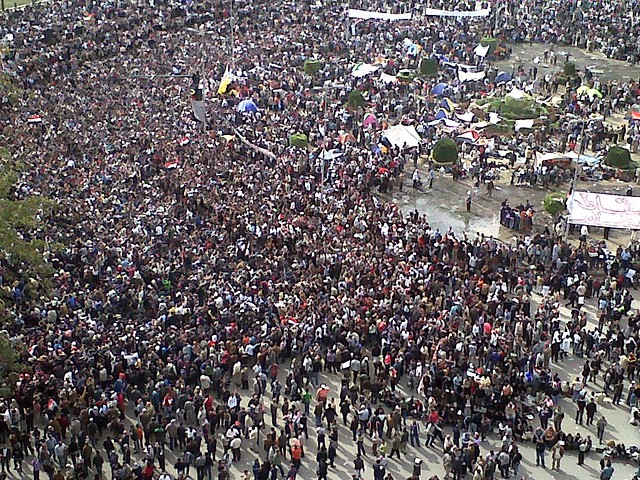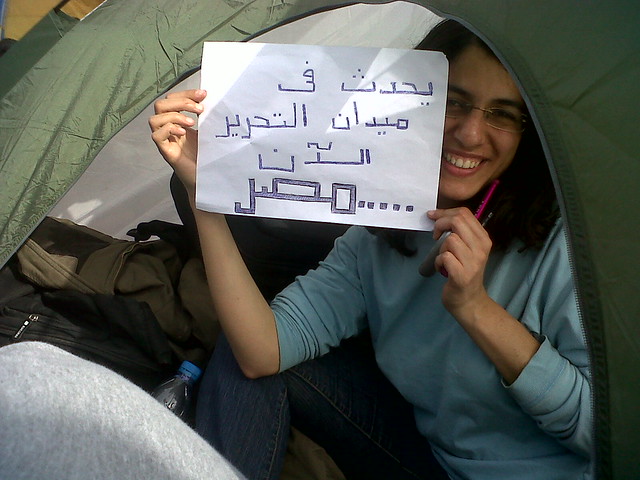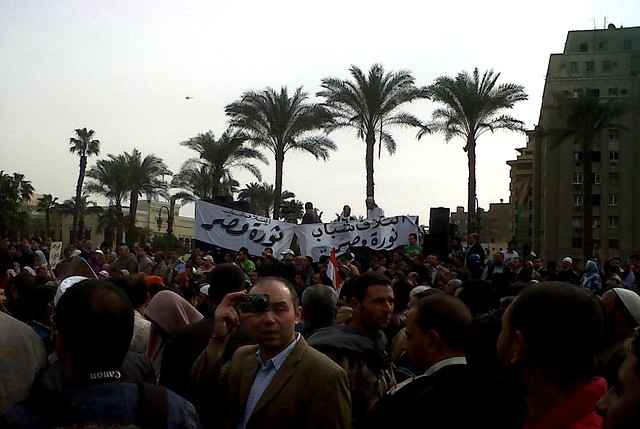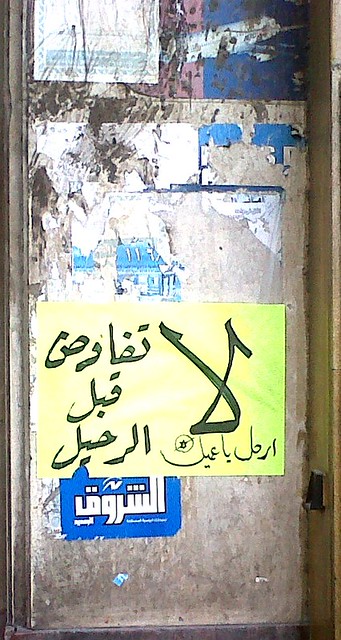The political demonstrations that began in Tunisia and spread to Egypt and to other countries in the region, appear to have instilled a new sense of possibility, solidarity and optimism in large parts of the world—citizens might be able shape their history after all. This also poses many questions that need discussing, for instance, the role of the public realm (Tahrir Square), the role of social media and of citizens, local and across the other side of the world—and our role.
 |
| Tahrir Square. Photograph by Monasosh |
A short video named “A Tent City 'Freedom Motel' in Tahrir Square”, managed to give us a glimpse of the more personal side of the citizens’ uprising in Egypt. These were citizens that without prior warning and equipped with conviction, organised themselves to provide others with the basic facilities needed to maintain the vigil in the Tahrir Square. Amidst the turmoil, they established a neat system—a tent city—that allowed them to persist in their dissent while servicing the needs of a sudden community. First aid, meals, security, internet, sanitary services and resting, and wedding services, all was there. The sense of purpose of those interviewed and filmed was evident and their optimism contagious (this in spite of the many deaths)—they appeared collectively motivated by the prospect of changing their destiny for the better. As ‘Freedom Motel’ showed us, tent cities are not always bad news.
 |
| "Live from Tahrir Square". Photograph by Monasosh |
Perhaps what I valued the most was the information captured outside the traditional media corporations (the twitter, Facebook impressions, the images), that gave us the opportunity to look closely to a different dimension of the political conflict, to zoom into the space and events that citizens can actually influence. Far away from Egypt, in Melbourne, I witness the spontaneous, the convivial and essential—people and their social space. The square, that as our colleague Orhan Ayyuce suggested, became the de facto democratic Parliament.
 |
| Tahrir Square. Photograph by Monasosh |
It is perhaps no coincidence that these events in Egypt took place at almost the same time when the delivery of incriminating information, involving corrupted regimes and multinationals, was being obstructed by the most rich and powerful governments.
 |
| Photograph by Monasosh |
WikiLeaks, an organisation that claims to defend “freedom of speech and media publishing, the improvement of our common historical record and the support of the rights of all people to create new history,” is under attack by corrupted political regimes preaching but not practicing transparency and accountability (or what some call “good governance”). This has prompt Architects for Peace to reinstate that:
Tyrannical regimes of any persuasion and from anywhere (North, South, East and West) need to be made accountable for their lies, crimes, abuses, occupations, for stealing natural resources and polluting the environment. We citizens, need to know the truth if we are going to embrace or dismiss those who govern in our name. And this is why Architects for Peace supports the work of WikiLeaks and acknowledges the need for its existence. We are ‘friends’ of WikiLeaks.
If the events of the last two months offer any indication of what this year will bring, well, let’s prepare ourselves for many challenges and hopefully for advances and more civic engagement of our professions.
Beatriz C. Maturana
Architects for Peace, Feb.2011
Architects for Peace, Feb.2011
Note: all photographs in this article are the property of Monasosh and have been used under Creative Commons (Attribution 2.0 Generic)
Originally published in Architects for Peace














